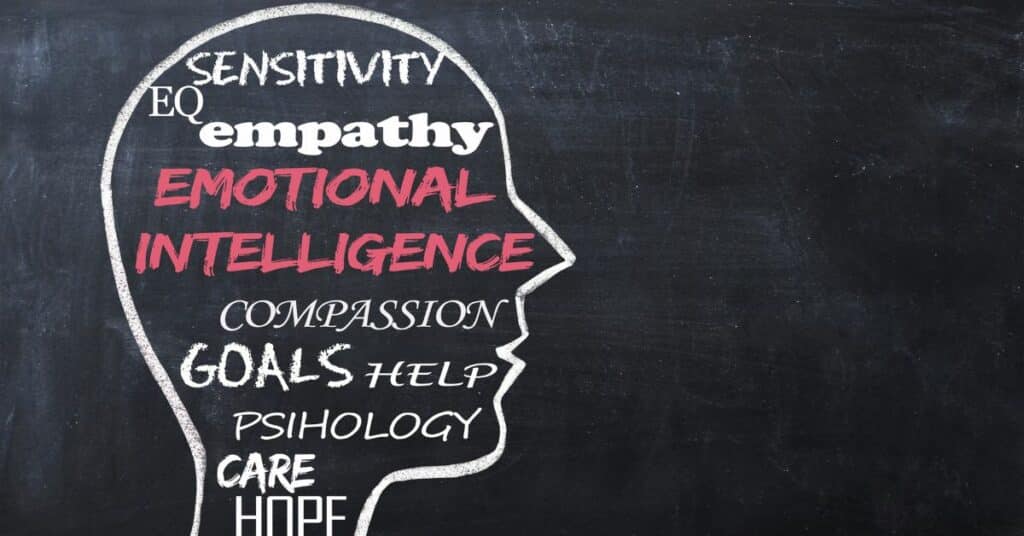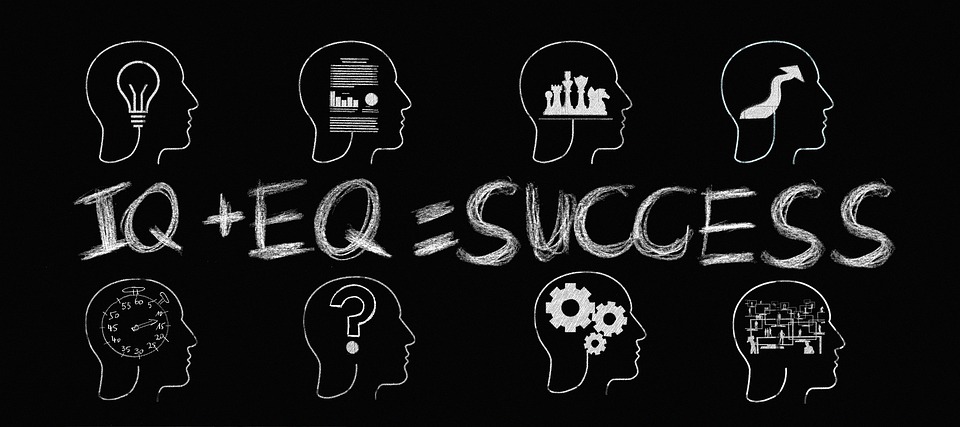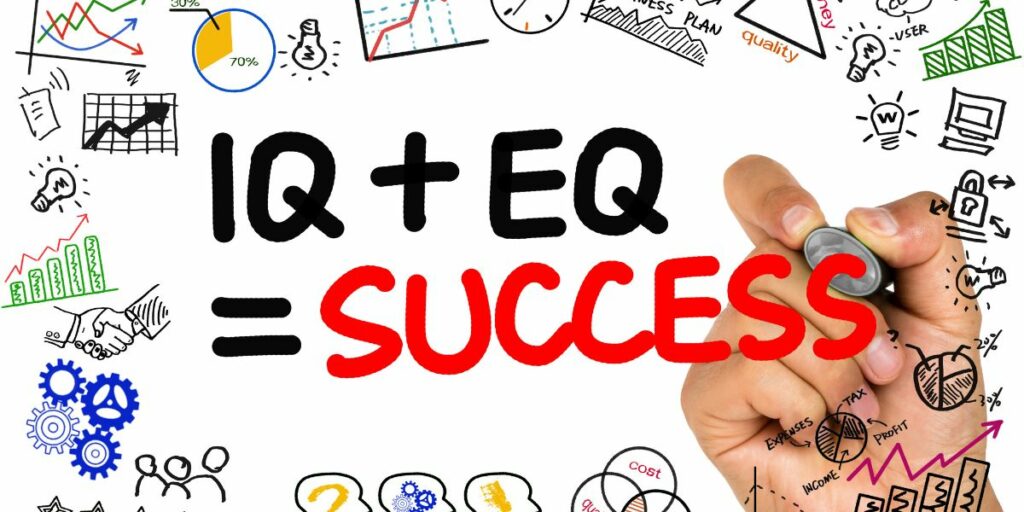Are you tired of miscommunications and strained relationships holding you back? Unlock your hidden superpower with our Emotional Intelligence (EQ) Workshops! EQ is the secret sauce for building empathy, improving social finesse, and creating high-performing teams that thrive under pressure.
At Cooper Consulting Group, we offer game-changing EQ workshops, both in-person and online. Our interactive sessions are like a gym for emotions, equipping you with practical tools to flex your EQ muscles. You’ll learn to turn challenges into growth opportunities and forge unbreakable connections that propel success.
This blog is your ultimate guide to leveling up your emotional intelligence for better relationships, stronger leadership, and a life where you call the shots. Get ready to embark on a transformative journey that’ll have you feeling like a real-life Tony Robbins (but with better dance moves).
Intrigued? Keep reading to discover how our EQ workshops can revolutionize your personal and professional game. It’s time to start winning with emotional intelligence!
Key Takeaways
- Emotional Intelligence (EQ) is crucial for better communication, empathy, and stress management in both personal and professional relationships.
- Developing emotional intelligence brings numerous benefits such as improved self-awareness, enhanced communication skills, stronger relationships with others, and increased resilience in dealing with stress.
- The EQ Workshop program offers comprehensive training that focuses on developing emotional intelligence through interactive activities like discussions, games, case studies, personal development planning, and coaching.
- Key components of emotional intelligence include self-awareness and self-regulation, empathy and social skills, and relationship management.
- Practical strategies for developing emotional intelligence include cultivating self-awareness through self-reflection and mindfulness practices, practicing emotional regulation and impulse control techniques like deep breathing exercises or positive self-talks, building empathy by understanding others’ perspectives through active listening exercises or perspective-taking activities & improving interpersonal communication skills through workshops that teach techniques such as active listening interpretation of nonverbal cues.
Understanding Emotional Intelligence (EQ)
Emotional intelligence, or EQ, is the ability to recognize and manage our own emotions as well as understand and empathize with the emotions of others.
Definition of Emotional Intelligence
Emotional intelligence, or EQ, is a vital part of our lives. It lets us understand our feelings and the feelings of others. We use it to think and make choices. When we have more of it, we can work well with other people.
Also, with higher EQ we can manage stress better. It helps us show empathy and build strong bonds with people around us. With EQ training, you can grow your skills in this area.
Importance of Emotional Intelligence in personal and professional life
Emotional intelligence, or EQ, is incredibly important in both personal and professional life. It helps us understand and manage our emotions effectively, Leading to better relationships with others and overall success.
In personal life, having a high level of EQ allows for healthier communication and more fulfilling connections with friends, family, and partners. It also helps us navigate conflict and manage stress more efficiently.
In the professional realm, EQ is crucial for effective leadership, teamwork, and collaboration. Managers with higher levels of emotional intelligence are often better at motivating their team members and resolving conflicts peacefully.
Additionally, individuals with strong EQ tend to exhibit adaptability in the workplace by handling change well and remaining resilient during challenging times. Developing emotional intelligence can provide numerous benefits that positively impact both personal fulfillment and career growth.
Benefits of Developing Emotional Intelligence
Developing emotional intelligence brings many benefits to both personal and professional life. Emotional intelligence helps in improving empathy, communication, social skills, stress management, teamwork, and various aspects of life.
It enables individuals to understand and manage their emotions effectively while also being aware of the feelings of others. This leads to better relationships with colleagues, friends, and family members.
Emotional intelligence training can result in enhanced self-awareness, improved communication abilities, stronger relationships with others, and increased resilience in dealing with stress.
Additionally, leaders who possess high levels of emotional intelligence exhibit effective leadership qualities as they are skilled at understanding and motivating their team members.
The EQ Workshop Program Overview
The EQ Workshop program is a comprehensive and interactive training that focuses on developing emotional intelligence skills through various activities such as discussion groups, games, case studies, personal development planning, and coaching.
Course description and objectives
The EQ Workshop is a program designed to help individuals develop their emotional intelligence skills. Through interactive activities and discussions, participants will learn about the importance of emotional intelligence in both personal and professional life.
The workshop aims to increase self-awareness, empathy, communication skills, and relationship management capabilities. By the end of the workshop, participants will have practical strategies to apply emotional intelligence in their daily lives and work environments.
Emotional intelligence training provides numerous benefits such as improved self-awareness, better communication, enhanced relationships, and increased resilience in dealing with stress.
Workshop agenda and learning objectives
The EQ Workshop is a comprehensive program designed to enhance emotional intelligence. Throughout the workshop, participants will engage in various activities and discussions aimed at improving their understanding and application of emotional intelligence skills.
The agenda includes interactive sessions, group exercises, case studies, and personal development planning. The learning objectives of the workshop are to increase self-awareness, develop empathy and social skills, strengthen relationship management abilities, and enhance communication capabilities.
By the end of the workshop, participants will have practical strategies for applying emotional intelligence in both personal and professional settings.
Key Components of Emotional Intelligence
The key components of Emotional Intelligence include self-awareness and self-regulation, empathy and social skills, and relationship management.
Self-awareness and self-regulation
Self-awareness and self-regulation are key components of emotional intelligence. Self-awareness involves understanding one’s own emotions, strengths, weaknesses, values, and motivations.
It allows individuals to recognize how their emotions impact their thoughts and behaviors. On the other hand, self-regulation refers to the ability to manage and control one’s emotions effectively.
It enables individuals to respond rather than react impulsively in challenging situations. Developing self-awareness and self-regulation skills can lead to better decision-making, increased resilience, improved stress management, and stronger relationships both personally and professionally (Emotional Intelligence Training).
Empathy and social skills
Empathy and social skills are key components of emotional intelligence. Empathy is the ability to understand and share the feelings of others, while social skills refer to our ability to interact and communicate effectively with others.
Developing empathy allows us to connect with people on a deeper level, showing understanding and compassion. Strong social skills help us build positive relationships, resolve conflicts, collaborate in teams, and navigate various social situations.
By improving these skills through workshops or training programs, individuals can enhance their interpersonal communication, foster better teamwork, and create a more supportive and inclusive environment both personally and professionally.
Relationship management
Relationship management is a key component of emotional intelligence. It involves the ability to build and maintain positive relationships with others, whether it’s in personal or professional settings.
By developing relationship management skills, individuals can improve communication, resolve conflicts effectively, and build trust within teams. Emotional intelligence workshops provide participants with practical strategies to enhance their relationship management abilities.
These strategies include active listening, effective communication techniques, conflict resolution methods, and fostering empathy towards others. Developing strong relationship management skills can lead to better teamwork, increased collaboration, and improved leadership capabilities.
Practical Strategies for Developing Emotional Intelligence
Develop emotional intelligence through self-reflection, mindfulness, and interpersonal communication. Strengthen your relationship management skills and improve your overall capability in personal and professional settings.
Interested to learn more? Read on!
Cultivating self-awareness through self-reflection and mindfulness
Developing self-awareness is a key component of emotional intelligence. By engaging in self-reflection and mindfulness practices, individuals can increase their understanding of their own thoughts, emotions, and behaviors.
This improved self-awareness allows them to better recognize and manage their emotions, make more informed decisions, and respond to situations with greater clarity and intentionality.
Studies have shown that practicing mindfulness techniques can lead to reduced stress levels, improved focus and concentration, enhanced emotional regulation, and increased overall well-being.
Practicing emotional regulation and impulse control
Practicing emotional regulation and impulse control is a crucial aspect of developing emotional intelligence. Emotional regulation involves managing our emotions in healthy and constructive ways, while impulse control refers to the ability to resist impulsive actions or reactions.
By practicing these skills, we can improve our decision-making, maintain calmness during stressful situations, and build healthier relationships with others. Research shows that individuals with higher levels of emotional intelligence are better equipped to regulate their emotions and make thoughtful choices rather than reacting impulsively.
Through strategies like deep breathing exercises, identifying triggers, and using positive self-talk, we can strengthen our ability to manage our emotions effectively and respond thoughtfully in various situations.
Building empathy and improving interpersonal communication
Building empathy and improving interpersonal communication are key components of emotional intelligence. Empathy is the ability to understand and share the feelings of others, while interpersonal communication involves effectively conveying thoughts, ideas, and emotions to others.
Developing these skills can greatly enhance personal and professional relationships.
By building empathy, individuals become more attuned to the needs and perspectives of others, fostering better understanding and connection. This leads to increased collaboration, teamwork, and conflict-resolution abilities.
Improved interpersonal communication allows individuals to express themselves clearly and listen actively to others’ viewpoints. This reduces misunderstandings, promotes effective problem-solving, and strengthens relationships.
Emotional intelligence workshops provide practical strategies for developing empathy and improving interpersonal communication skills. Participants learn techniques such as active listening, nonverbal cues interpretation, perspective-taking exercises, and empathetic responses.
Strengthening relationship management skills
Strengthening relationship management skills is a key component of emotional intelligence. It involves developing the ability to build and maintain positive connections with others, effectively communicate, collaborate, and resolve conflicts.
With strong relationship management skills, individuals can foster healthy relationships in both personal and professional settings. This includes being able to understand other people’s perspectives, empathize with their emotions, and adapt communication styles accordingly.
By improving these skills through workshops and training programs, individuals can enhance their interpersonal relationships, create a positive work environment, and become more effective leaders.
Conclusion and Next Steps
In conclusion, developing emotional intelligence skills through workshops can greatly benefit individuals in both their personal and professional lives. By cultivating self-awareness, practicing emotional regulation, building empathy, and strengthening relationship management skills, participants can enhance their overall EQ capability.
It is important to continue applying these newfound skills in daily life and work to further improve interpersonal relationships and leadership abilities.
Recap of the importance of Emotional Intelligence
Emotional intelligence, or EQ, is extremely important in both our personal and professional lives. It plays a crucial role in improving our empathy, communication skills, stress management abilities, and teamwork capabilities.
Developing emotional intelligence can lead to better self-awareness, enhanced relationships with others, improved resilience in dealing with stress, and overall success in various aspects of life.
Through workshops and training programs focused on emotional intelligence, individuals have the opportunity to cultivate these skills and become more effective leaders by understanding the impact of their actions on others and learning strategies to positively influence their environment.
Encouragement to continue developing and applying EQ skills in daily life and work
Developing and applying EQ skills is an ongoing process that can greatly benefit our daily life and work. By continuing to cultivate emotional intelligence, we can improve our self-awareness, communicate effectively with others, build stronger relationships, and navigate challenging situations with resilience.
It’s important to remember that emotional intelligence is not a fixed trait, but rather something that can be learned and nurtured over time. By practicing mindfulness, regulating our emotions, showing empathy towards others, and managing relationships effectively, we can continue to enhance our EQ capabilities.
So let’s keep learning and growing in this important area for personal and professional success!
FAQs
1. What is an EQ workshop?
An EQ workshop is a training session or program that focuses on developing emotional intelligence (EQ) skills, such as self-awareness, empathy, and effective communication.
2. Why should I attend an EQ workshop?
Attending an EQ workshop can help you improve your ability to understand and manage emotions in yourself and others, which can lead to better relationships, increased success in personal and professional life, and improved overall well-being.
3. Who can benefit from attending an EQ workshop?
Anyone who wants to enhance their emotional intelligence skills can benefit from attending an EQ workshop. It is useful for individuals of all ages and backgrounds, including students, professionals, leaders, parents, and anyone interested in personal growth.
4. What can I expect to learn in an EQ workshop?
In an EQ workshop, you will learn practical strategies for increasing self-awareness, managing emotions effectively, building stronger relationships through empathy and active listening techniques, resolving conflicts constructively,
and improving overall communication skills.




